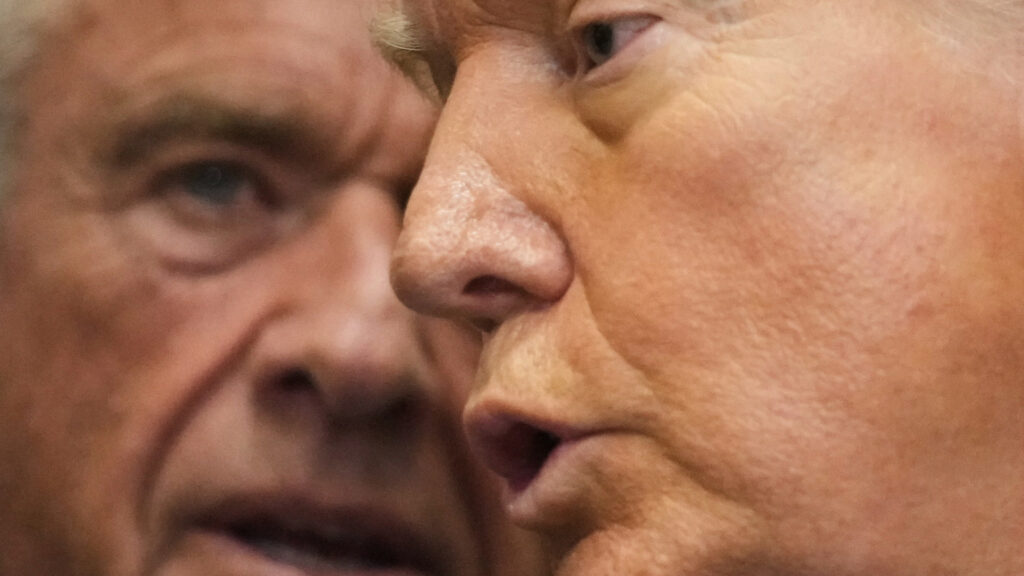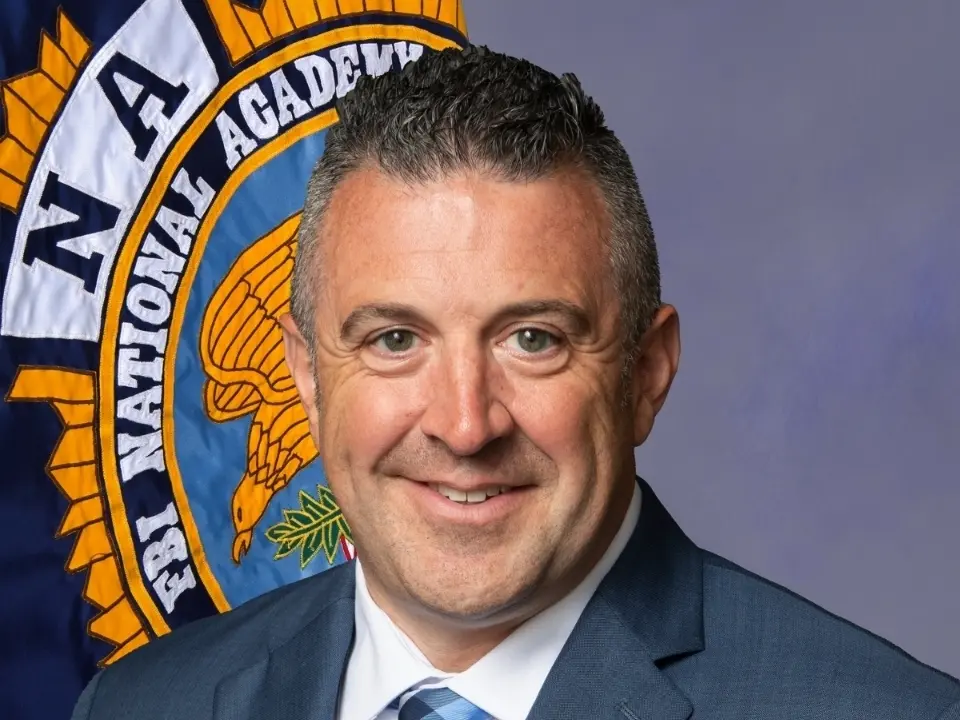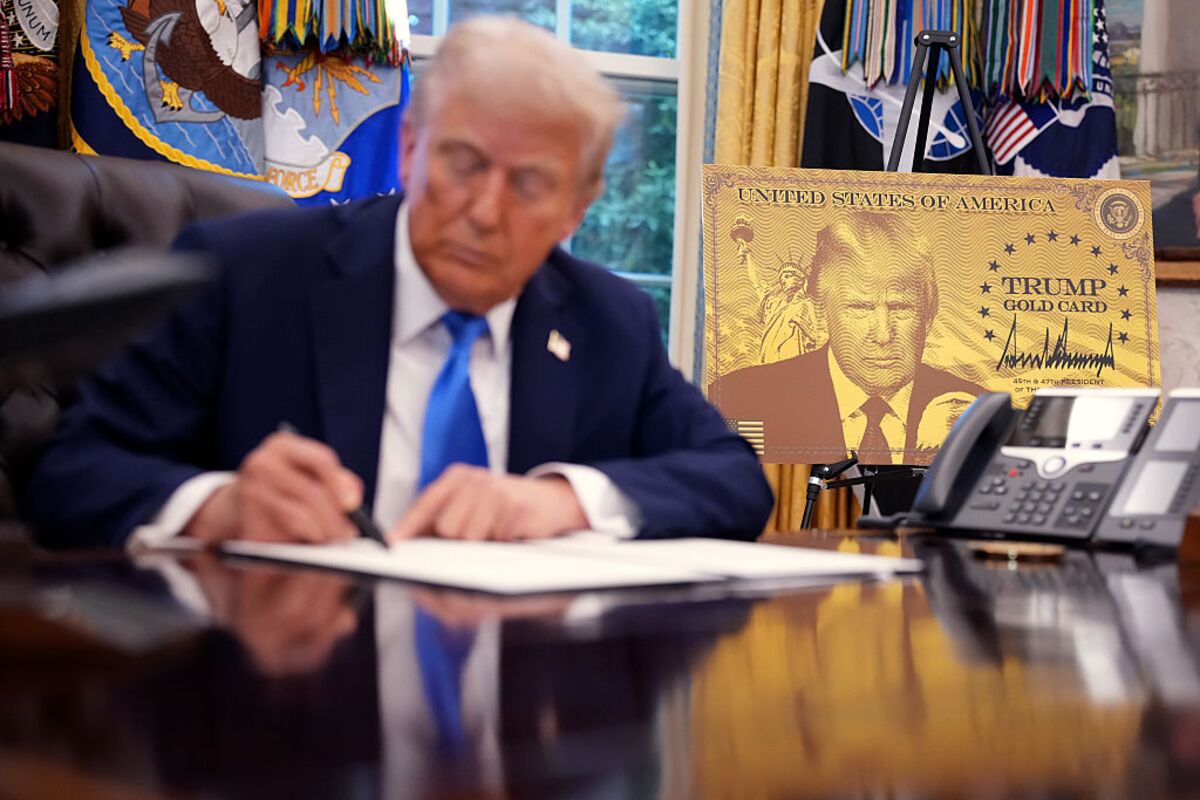
He’s already the commander in chief, chief of state, chief diplomat, and chief legislator. But at his news conference Monday, President Trump ventured far beyond the usual responsibilities of the presidency and began to dispense medical guidance to the public that is at odds with the scientific consensus.
It’s one of the most commonly uttered phrases in medicine: “Ask your doctor if ___ is right for you.” But addressing the American people from the White House, Trump short-circuited this conventional wisdom, repeatedly and forcefully issuing direct medical advice in ways that went beyond presidential precedent.
Advertisement
“Don’t take Tylenol,” he sternly implored pregnant women, citing a potential link to autism. His advice, which he repeated around 20 times, was based in part on what he called “common sense.”
In his assertions, Trump did not attempt to cite scientific or medical evidence. “This is based on what I feel,” he said.
It’s not unheard of for a head of state to use the bully pulpit to make public health statements. In 2011, then-President Barack Obama encouraged Americans who smoke to consider quitting, adding that as a former smoker he knew that was easier said than done. Dwight Eisenhower called on Americans to take the polio vaccine. But those remarks and others by previous presidents were based on clear and widely accepted evidence.
Advertisement
“Presidents have a long history of giving the public advice on public health issues,” said John Evans, a sociologist at the University of California San Diego who studies the relationship between science and society. “The difference here is that there has never been a president who has taken stances that are in opposition to the vast majority of scientists and doctors.”
Trump opened his remarks with an assertion that he felt he understood autism and its causes “a lot more than a lot of the people who studied it.” He went on to offer direct medical advice, practically none of which was grounded in scientific evidence or consensus, in a monologue that touched on a wide range of misinformation.
For instance, Trump repeatedly claimed that taking Tylenol during pregnancy can significantly increase the risk of autism, and that multi-vaccine shots like the measles, mumps, and rubella vaccine would be safer if taken as separate, individual shots.
Trump’s appearance on Monday conjured memories of the press conference in April 2020, when he wondered aloud if treating people with heat and UV light or injecting bleach could kill the coronavirus (the president later claimed he was trying to prank reporters with his remarks).
During his first term, however, physicians and scientists within the federal government would occasionally push back against the president’s comments, and often gave guidance that conflicted with Trump’s recommendations. And his comments this week went far beyond the “wondering” stage to a forcefulness not seen before.
“There’s this longer trend of the erosion of the value of science and evidence in Donald Trump’s press conferences,” said Tabitha Bonilla, a political scientist at Northwestern University, noting that Trump’s lack of adherence to facts is consistent going back to his first term. “What’s really fascinating is that in this administration, unlike the last time, he’s created these advisory groups and boards and structures that agree with him.”
Advertisement
Trump’s words carry clear weight given both his millions of supporters and a decline in the public’s trust of medical experts. A Gallup poll released in January found a 14% drop in respondents’ trust of doctors since 2021, with 53% of respondents rating the honesty and ethical standards of physicians as high or very high.
“During Covid, Mr. Trump’s unscripted remarks about unproven treatments led to confusion and misconceptions that linger even today,” said Josh Salomon, a public health researcher at Stanford University. “The public deserves medical guidance grounded in careful, rigorous evaluation of evidence through established processes.”
There is limited evidence linking acetaminophen, the pain-killing molecule that is Tylenol’s active ingredient, and autism. There are some studies that found women who take Tylenol while pregnant are more likely to give birth to children with autism than those who don’t, but such observational studies don’t show whether the medication caused autism or is simply associated with other factors that do. For instance, women with a higher genetic risk of autism are more likely to experience headaches — which they might treat with Tylenol.
Other studies have suggested there is not a causal link between Tylenol use during pregnancy and autism. And while the prevalence of autism has increased, Trump did not cite any evidence for a concordant rise in the use of the medication during pregnancy. Researchers have stressed that autism is a complex, multifactorial disease linked to more than 100 genes.
Adding to the complexity of the issue are studies showing there is an association between fever during pregnancy and increased risk for certain birth defects like spina bifida, in which the spine doesn’t form properly. “I fear this is going to potentially hurt families. Women are going to be scared of taking Tylenol in pregnancy. Certain untreated conditions in pregnancy put you at risk for other things,” Rachel Follmer, a pediatrician at Northwestern University, said in a statement.
Advertisement
The Trump administration has promised to restore “gold standard science,” which it describes as reproducible, communicative of error and uncertainty, and skeptical of its findings, among other characteristics. But at his press conference, Trump did not acknowledge evidence and studies that contradicted his claims. Responding to a question about the American College of Obstetricians and Gynecologists defending acetaminophen as safe for pregnant women, Trump said, “You know what? Maybe they’re right. I don’t think they are,” before implying without evidence that the professional association’s views may be shaped by its funding sources.
“I was shocked that a president, any president, would make such a pronouncement, one that has no scientific basis and will scare, and possibly harm, pregnant women across the country,” said Neal Lane, who served as Bill Clinton’s science adviser. “Were I his science adviser, I would never recommend the president do this.”
While Trump’s remarks centered around the purported Tylenol-autism link, he also offered advice on other medical matters. He said at multiple points that infants don’t need the hepatitis B vaccine until they turn 12 since the virus is sexually transmitted. However, the virus can be transmitted via blood and other fluids, not just sexual contact, according to the CDC. Infections among children have plummeted 99% ever since a CDC advisory panel recommended the shots for newborns about forty years ago.
And in recommending that shots be given separately for measles, mumps, and rubella, Trump argued more broadly that infants currently get too many vaccines at once, with babies immunized with “a vat of 80 different vaccines, I guess.” That figure is incorrect, according to the current child vaccine schedule.
Trump’s framing of his recommendations as common sense rather than specialized knowledge is familiar to USCD’s Evans, who has studied the effect of populism on the public’s view of expertise.
Advertisement
“A hallmark of populism is to say ‘common sense.’ [At] other times this has been called the common wisdom of the American people: You don’t need experts and scientists to tell you what to do,” he said. “Your own common sense can solve these problems.”
Towards the end of the press conference, after several federal agency heads spoke, Trump returned to the lectern to remark again on the nature of acetaminophen. “So, I just want to say that acetaminophen is basically Tylenol, because I noticed those words are used interchangeably throughout this conference,” he said, looking around. “So, it’s essentially Tylenol.”



